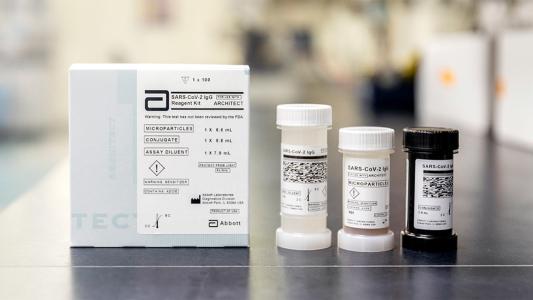The coronavirus crisis is unique. Addressing it will require new ideas, new perspectives, and new voices. That’s our mission at Freethink.
In our weekly “Coronavirus News Roundup,” we’re highlighting the most important stories from the frontlines of the fight against COVID-19. Stories that inform, challenge, and inspire.
Here are our must reads for today, April 17, 2020.
1. The FDA Approves the First Saliva Test for the Coronavirus
If you need to get tested for the coronavirus in the future, you might not have to endure an unpleasant deep nose swab as the Food and Drug Administration has given a new saliva-based test the green light.
2. Apple and Google Join Forces on a Coronavirus Tracking Project
Two of the world’s biggest tech companies have teamed up to tackle a major problem for health researchers: effectively tracking the coronavirus’s spread without infringing upon people’s right to privacy.
3. Doctors Use AI to Test New Coronavirus Treatments on Patients
The AI platform at the center of a newly launched clinical trial is helping researchers quickly identify the coronavirus treatments that are helping patients — and quickly abandon those that aren’t.
4. Major League Baseball Joins a Massive Coronavirus Antibody Study
More than 10,000 players and employees from the MLB agreed to have their blood tested for coronavirus antibodies in a massive study that could help bring an end to COVID-19 lockdowns.
5. Across America, Libraries Are Fighting the Coronavirus
With their doors currently closed to the public, libraries across the U.S. have pivoted their attention toward the COVID-19 pandemic — and they’re making a difference in some incredible ways.






